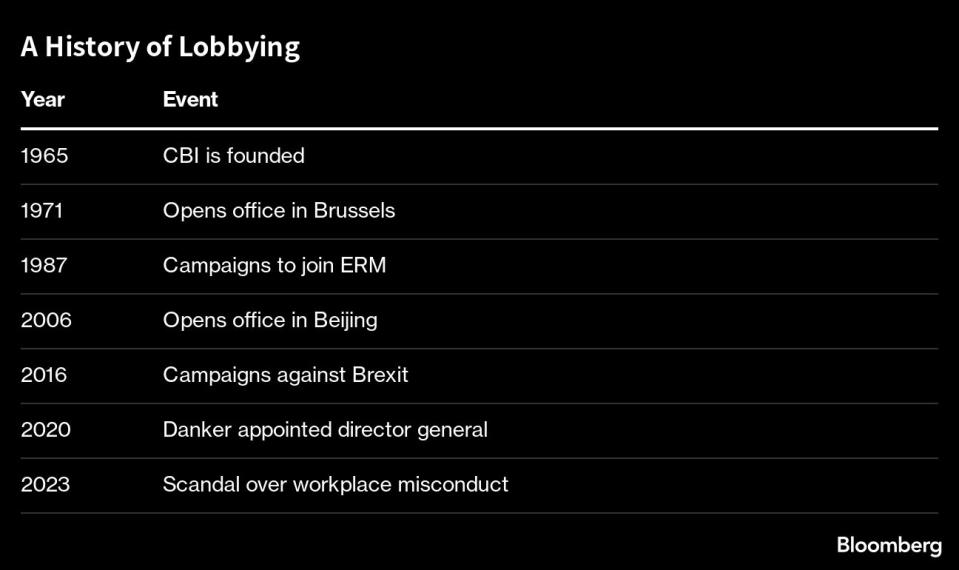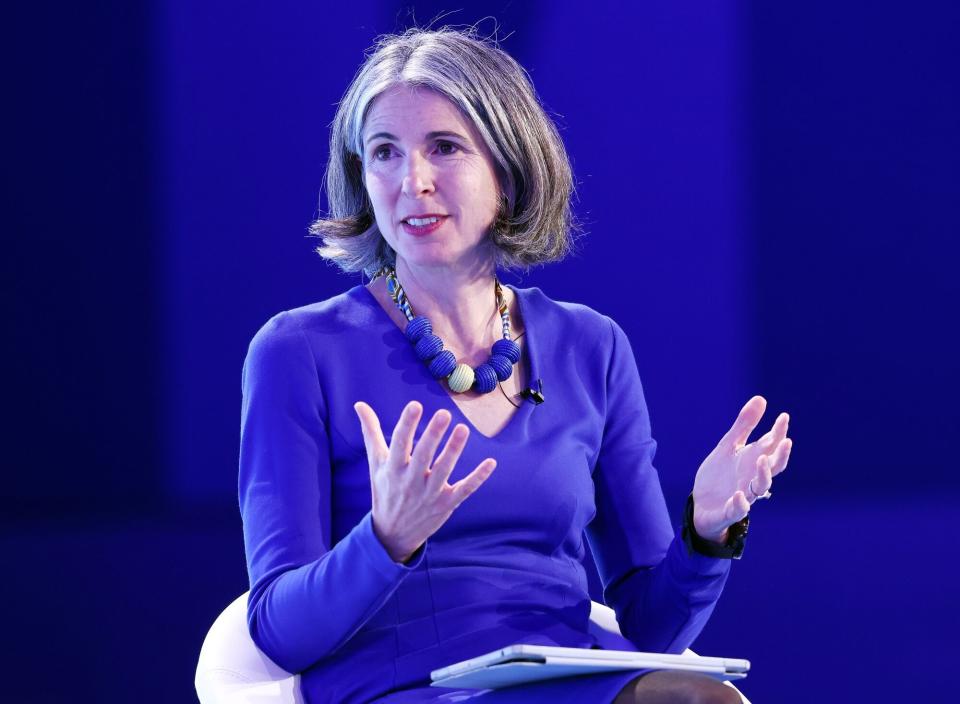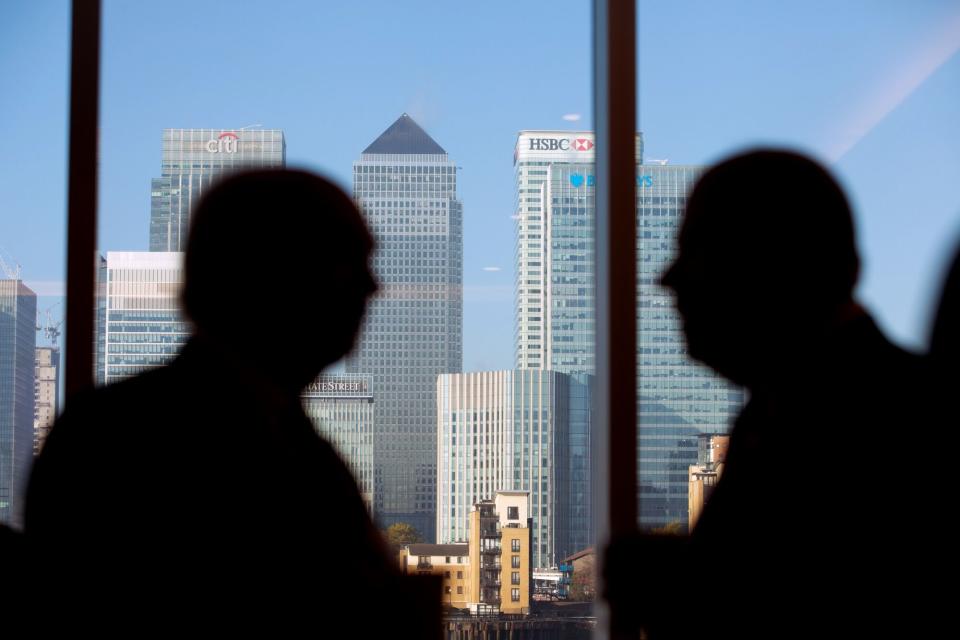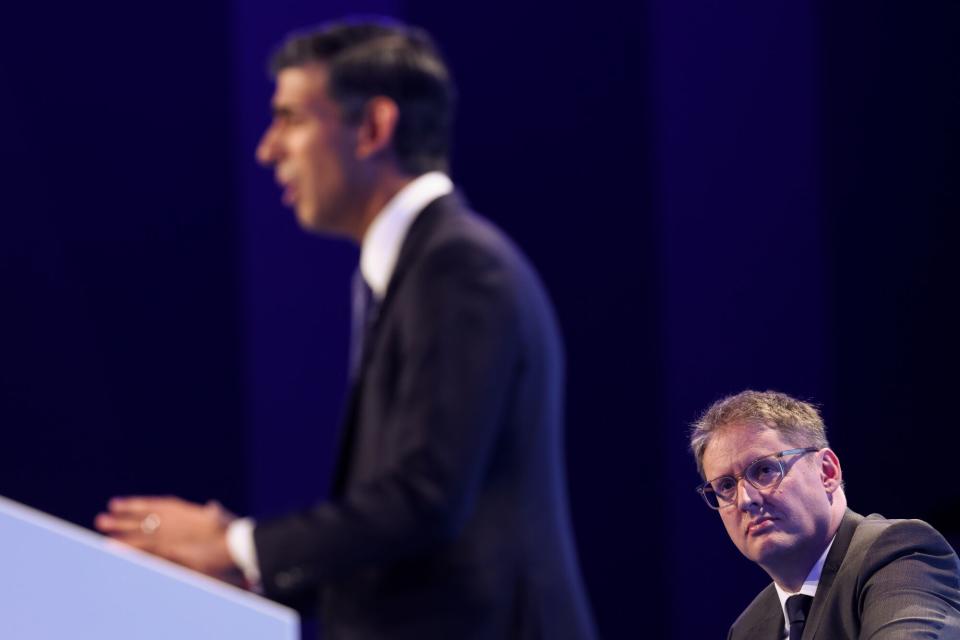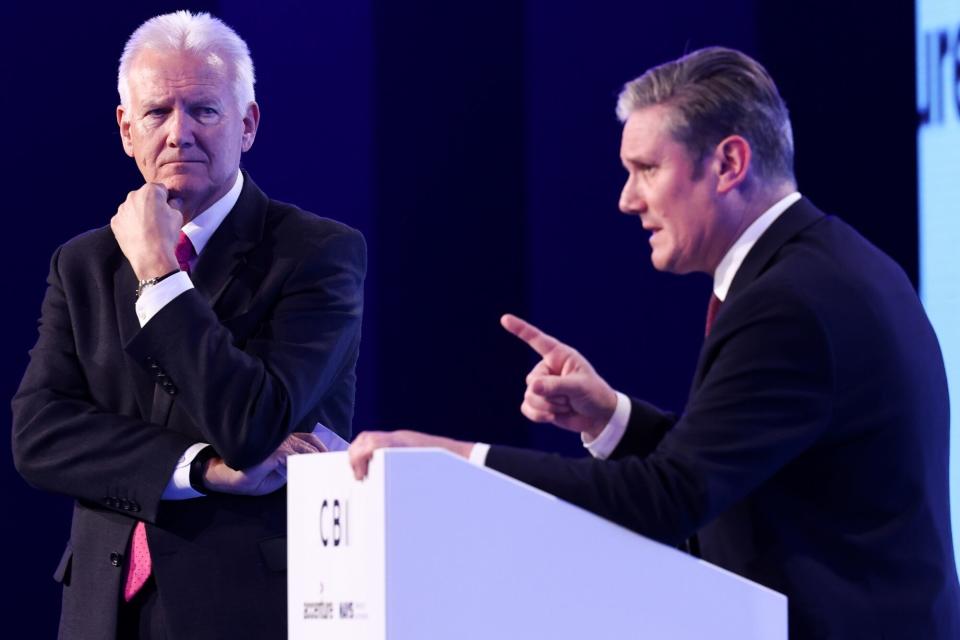Scandal at CBI Plunges UK Business Lobby Into Existential Crisis
- Oops!Something went wrong.Please try again later.
- Oops!Something went wrong.Please try again later.
(Bloomberg) --
Most Read from Bloomberg
First Republic Worked Hard to Woo Rich Clients. It Was the Bank’s Undoing
In Morgan Stanley CEO Race, Wealth Boss Emerges as One to Watch
Fuel That Powers the Global Economy Is Flashing Recession Signs
Merck-Moderna Vaccine Helps Keep Patients Free From Skin Cancer
When Rishi Sunak stepped up to the podium at the Vox venue in Birmingham in November, he had one mission: to convince business leaders to stay loyal after his predecessor unleashed economic mayhem.
The UK prime minister was addressing the annual conference of the venerable Confederation of British Industry, whose members include FTSE 100 companies down to small trade associations. Yet less than five months later, Sunak’s government has halted engagement with an organization whose political clout was a linchpin of its power.
The CBI is now in chaos. It’s hired a law firm to investigate sexual harassment claims and is the subject of a police probe after reports of an alleged rape. Tony Danker, the director general who welcomed Sunak onto the stage in November, was fired this week over unrelated allegations of workplace misconduct. But the existential crisis the CBI now faces is as much about whether Britain’s biggest business lobby group is fit for purpose as how it’s run, and whether the scandal will just hasten its demise.
Some prominent companies are privately considering whether to cancel their memberships. A director at one FTSE 100 company said there were already long-standing issues for the CBI, and the scandal could be a convenient excuse for many businesses to abandon ship.
Neville Koopowitz, the chief executive officer of health insurer Vitality UK, questioned whether there was value of being part of the CBI anymore, or whether more targeted organizations, such as the Association of British Insurers, could be more useful. “The CBI needs to engage with its members to show the value it brings to businesses,” he said.
The CBI, which has promoted the interests of UK companies for six decades, took swift action by dismissing Danker and naming its former chief economist Rain Newton-Smith as his successor. Three employees have been suspended. Traces of Danker have also largely been removed from the CBI’s website, his speeches and videos gone.Brian McBride, the president of CBI, apologized for the scandal and said he expects the probe's results "imminently," the Financial Times reported Friday. He said the organization needs to redefine itself to become "sharper" and "more focused," and acknowledged a "handful" of smaller members had left since the scandal broke.
Whatever the outcome, the events have inevitably prompted questions about how the CBI can move on in its current form. The crux is whether one group can really talk for all of business, or whether the CBI’s role will collectively be replaced by smaller groups such as the British Chambers of Commerce and Federation of Small Businesses. A CBI spokesperson declined to comment on the future or whether its power is waning.
Formed in 1965 during the post-war rise of the trade unions, the CBI worked to represent the voice of business as workers gained increasing power. By 1971, the group had an office in Brussels to open up opportunities in Europe, and outposts in Washington, Beijing and New Delhi followed.
The CBI refuses to disclose how many members it has, but claims to speak for 190,000 businesses, many through its 175 trade association members, and others as direct members.
Behind each flagship political decision, the CBI has advocated — both in private and in public — for the interests of business. And the CBI had the ear of the prime minister and the chancellor of the day.
Vince Cable, the business secretary between 2010 and 2015, recalled how the CBI had influenced policy from high pay to women on boards. Cable had favored a quota for female representation, but the CBI pushed for a compromise, and ultimately companies were encouraged to sign up for a voluntary target.
On executive pay, Cable had advocated for worker representatives on boards. Ultimately they agreed to a compulsory shareholder approved pay policy, which had not existed before. “The CBI was very good at coming up with an alternative,” he said.
But a longstanding complaint is that the CBI prioritizes the views of big businesses over small. In the years after the global financial crisis, Cable said small businesses were “screaming for action” to get banks to lend again. “Because the banks were part of the CBI membership, they were very muted and ambiguous, and not massively helpful,” he said.
Even if the CBI restores its access to the highest levels of government, critics have argued for a while that the confederation’s power has waned.
Wyn Grant, emeritus professor at the University of Warwick and author of an analysis of the CBI’s role in Britain’s political system, wrote in a 2015 paper that it was a “shadow of its former self.” Its heyday was during 1960s and 70s, when it was influential in setting economic policy, he said.
That was before a standoff with Margaret Thatcher’s leadership. Terence Beckett, the former chairman of Ford, denounced her economic reforms and promised a “bare knuckle” fight when he was director general of the CBI.
It has also been bruised by some decisions to back failed policies. In 1987, the CBI supported joining the European exchange-rate mechanism. But less than two years after joining, and after a flood of selling the pound on foreign stock exchanges, Britain was forced out of the ERM, in what became known as Black Wednesday. The CBI also campaigned to join the euro.
Attacks on the CBI intensified before Britain’s vote on Brexit. Ahead of the referendum on the EU, the Vote Leave campaign issued an advert to coincide with the CBI conference with the words “Wrong on ERM, wrong on euro, and wrong on EU.”
Supporters of the CBI say that it fills a vital role in unifying business over the big issues — and providing a screen for individual CEOs to hide behind. Mike Rake, the former chair of BT Group Plc and president of the CBI from 2013 to 2015, said it was crucial the organization survived.
“Really engaging in policy matters doesn’t always make them popular, but it’s important that we have it, particularly at the moment, with all the difficulties we have in our economy,” he said, pointing towards the UK’s position as the slowest-growing economy in the G7.
The CBI had ultimately been vindicated over Brexit, he said. “The CBI’s report on the implications of Brexit proved to be totally correct in every single sense,” said Rake.
A former senior employee said that the CBI was a unifying voice among the sea of trade associations in the UK. Two other former senior employees pointed toward the success of the furlough scheme during the Covid pandemic when the government stepped in to pay employee wages when businesses were forced to close. The CBI’s former director general Carolyn Fairbairn, who left in 2020, had worked directly with Sunak, when he was chancellor, on the solution.
The task now is to maintain that influence and keep members on board. Fees are paid according to revenue, meaning the lion’s share of its £22 million ($28 million) fees come from the biggest members of the FTSE 100. It employs 300 people across the UK and in the US, India, China and Brussels — with a wage bill of almost £14 million.
CBI President Brian McBride launched a charm offensive with members, holding conference calls to outline his plans for resolving the crisis. The organization is cooperating fully with the investigation by City of London police. The CBI said that board member Jill Ader, a former chair of the executive search firm Egon Zehner, would oversee a “root and branch” review of the organization’s culture and governances.
Publicly, most CBI members have been restrained. Tesco Plc CEO Ken Murphy said on a call with reporters on Thursday that the allegations were “very serious,” but that it was “inappropriate” for him to comment further. “As it stands today we don’t have any interaction with them,” he said. A Rolls-Royce Plc spokesperson said the company would await the completion of the probe before considering whether to remain a member.
However, all members are pressing for change. Some criticized the swift appointment of Newton-Smith, without a full recruitment process, and who had been at the CBI when the alleged misconduct had occurred. The longer the CBI can’t engage and talk to people, the less useful they become, said the representative of another.
“There are many other industry bodies that are probably closer to their particular sectors, and sometimes things come to an end,” said Gwen Rhys, the CEO of campaign group Women in the City. “Perhaps it’s time for the end of the CBI as it has been, and this is just something that has rocked it and brought things to light.”
--With assistance from Katie Linsell, Siddharth Vikram Philip and Justina Lee.
(Adds reference to Macron appearing on national television in ninth paragraph)
Most Read from Bloomberg Businessweek
Banking Crises Are Preventable, But Human Nature Gets in the Way
Women Tackle Football With a Full-Contact League of Their Own
©2023 Bloomberg L.P.

